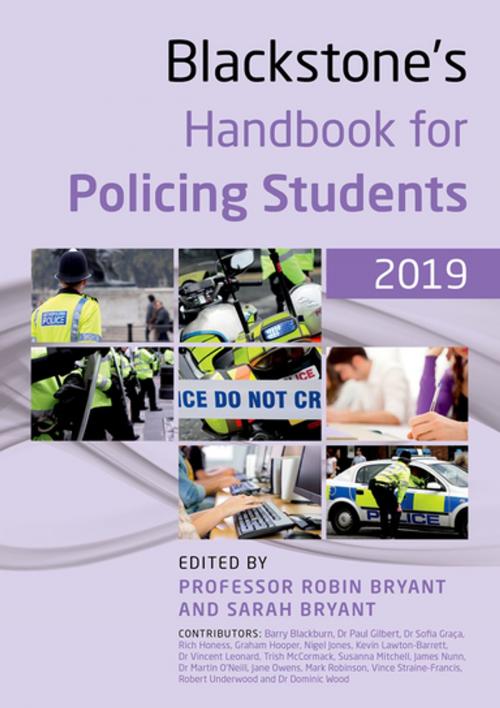Blackstone's Handbook for Policing Students 2019
Nonfiction, Reference & Language, Law, Criminal Procedure, Social & Cultural Studies, Social Science| Author: | ISBN: | 9780192563576 | |
| Publisher: | OUP Oxford | Publication: | August 30, 2018 |
| Imprint: | OUP Oxford | Language: | English |
| Author: | |
| ISBN: | 9780192563576 |
| Publisher: | OUP Oxford |
| Publication: | August 30, 2018 |
| Imprint: | OUP Oxford |
| Language: | English |
Blackstone's Handbook for Policing Students 2019 reflects the multitude of avenues into policing now open to future police officers, from pre-join degree courses and degree apprenticeships to progression from serving as a Special or working as a PCSO. Divided into six parts, representing key stages in your progression from pre-join programmes, to initial training and then confirmation, the Handbook leads you through the topics, covering theory, discussion, and practice while developing skills of analysis, problem solving, and forms of reasoning. Coupled with a comprehensive and accessible style, the book ensures you have the knowledge and understanding necessary to undertake independent patrol in a professional and competent manner. Key topics covered include stop, search and entry; alcohol and drug offences; sexual offences; interviewing; and intelligence, as well as a new chapter on cybercrime. Parts of initial police training common to all new entrants are easily identified and there are specific chapters on qualification structures and training and assessment, meeting the needs of students whether you are entering policing through pre-join schemes or through an alternative qualification route.
Blackstone's Handbook for Policing Students 2019 reflects the multitude of avenues into policing now open to future police officers, from pre-join degree courses and degree apprenticeships to progression from serving as a Special or working as a PCSO. Divided into six parts, representing key stages in your progression from pre-join programmes, to initial training and then confirmation, the Handbook leads you through the topics, covering theory, discussion, and practice while developing skills of analysis, problem solving, and forms of reasoning. Coupled with a comprehensive and accessible style, the book ensures you have the knowledge and understanding necessary to undertake independent patrol in a professional and competent manner. Key topics covered include stop, search and entry; alcohol and drug offences; sexual offences; interviewing; and intelligence, as well as a new chapter on cybercrime. Parts of initial police training common to all new entrants are easily identified and there are specific chapters on qualification structures and training and assessment, meeting the needs of students whether you are entering policing through pre-join schemes or through an alternative qualification route.















